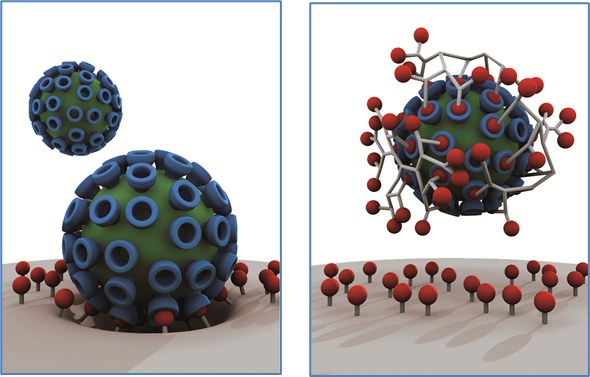Influenza A virus (IAV) anchors to host cell surfaces with different surface proteins to initiate the infection cycle. These surface proteins are responsible for the virus adhesion to and release of newly produced viruses from host cells. In this project the investigators aim to mimic the host cells by using similar receptor molecules displayed on a multivalent scaffold but arranged with high precision to “trick” the virus and efficiently block infection. The project focuses on the precise design of affordable multivalent scaffolds that carry different virus-binding receptor molecules to block virus surface proteins and arrest the infection cycle. If successful the resulting drug candidate will provide a new approach to target pandemic IAV strains, prevent resistance, and contribute to the preparedness for future influenza pandemics.
The researchers behind the supported project perfectly combine their expertise on multivalent scaffolds, nucleic acid technology, glycoconjugates, in vitro binding assays and IAV in vivo models. The consortium consists of: Principal Investigator (PI) Rainer Haag and research group, Freie Universität Berlin; and collaborators Jørgen Kjems and Julián Valero Moreno and research groups at Aarhus University; Wendy Barclay and research group at Imperial College of London; and Sumati Bhatia and research group at Swansea University. The 3-year project will commence in the Spring of 2024.
